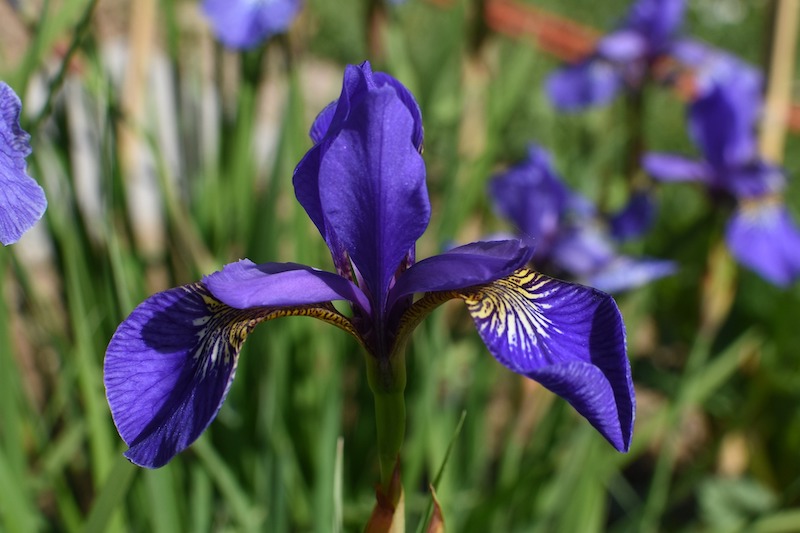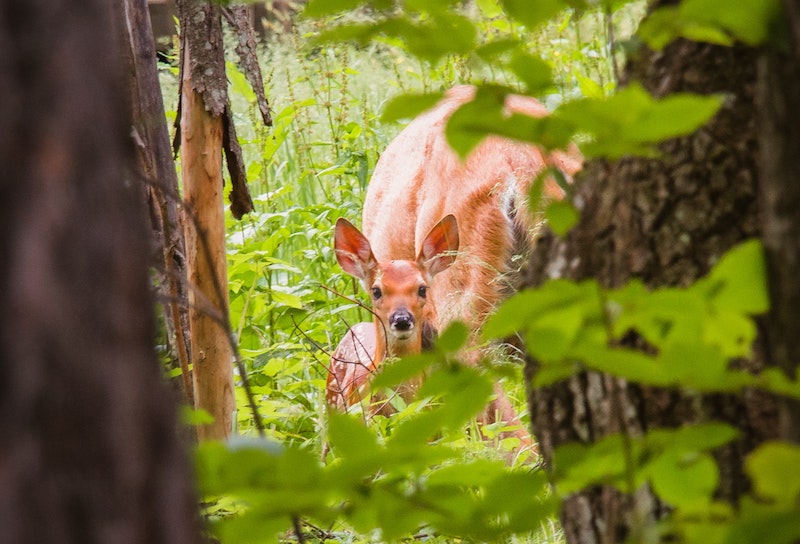All species and cultivars of iris are generally safe from the random browsing habits of deer. The tough, stiff leaves and stems are not appealing to deer. The flower buds develop during late spring and early summer while deer are distracted by some of their most favored plants such as hosta, fuschia, or roses. Because iris is an herbaceous perennial, the foliage dies back fully in the fall and is unavailable for browsing during the winter by hungry deer.

According to Rutgers University, this plant is rarely damaged on their rating scale from rarely damaged to frequently severely damaged.
Keeping Deer Away From Iris
Because iris is so rarely bothered by deer, this is a good plant to use widely throughout your garden if you live in an area with a high population of antlered eating machines. Grow the smaller bulb types in containers alongside tender perennials and annuals to lend seasonal color to a deck or patio. The larger bearded and nonbearded types can be left to naturalize in sunny sections of the garden without fear that they will be bothered by deer.
Will Iris Come Back After Deer Eat Them?
If the worst scenario happens and deer in your garden are hungry enough to browse on your iris plants, have no fear. Even the most delicate and small iris cultivar is tough enough to rebound from an episode of browsing. If the flower buds are eaten, then blooming may be delayed by a few weeks or at worst until next year. Any damaged foliage will be replaced with new growth. If the damaged area begins to turn brown, simply cut the damaged leaf to the ground. Pruning back damaged leaves will protect the plant from possible attack from pests and disease later.
Sources: Rutgers New Jersey Agricultural Experiment Station ‘Landscape Plants Rated by Deer Resistance’ 2018
 |
Author Robbin Small - Published 4-19-2023 |

